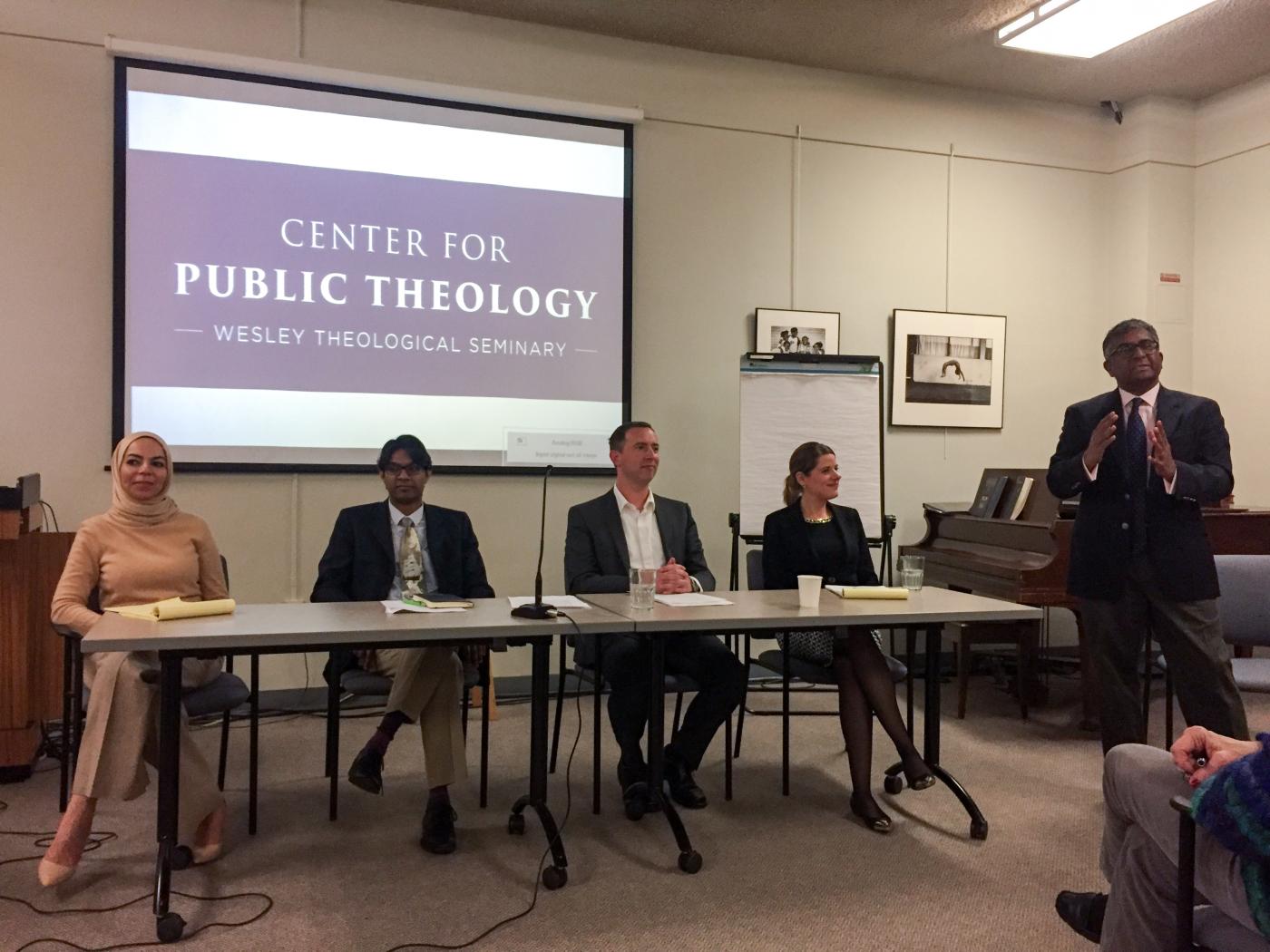A public panel on “Interfaith Hospitality in a World of Islamophobia” explored how faith communities can respond effectively to increasing tendencies of Islamophobia. Focusing primarily, but not exclusively, on the American context, the panel, organised by the Wesley Theological Seminary, a leading Methodist seminary in the United States, offered diverse perspectives on what interfaith hospitality might entail in today’s world.
Reflecting on the American context, Dr Todd Green, associate professor of religion at Luther College in Decorah, Iowa and author of “The Fear of Islam: An Introduction to Islamophobia in the West” in his opening presentation said, "Two moral questions stand before our nation in this age of Islamophobia, and Christian communities must take the lead in helping the nation address these questions: What are our commitments to our Muslim neighbors? How do we tell truths about our Muslim neighbors?"
Arguing that “the one factor that poses the greatest barrier to countering Islamophobia is the lack of meaningful relationships between Muslims and the majority population in the United States, including Christians,” Green emphasized the importance of personal relationships. “They break down barriers. They erode prejudices. They humanize a community that is so blatantly and maliciously dehumanized,” he said.
Dr Engy Abdelkader, faculty member at Georgetown University’s Edmund A. Walsh School of Foreign Service and senior fellow at Georgetown’s Bridge Initiative reflected on Islamophobia from the perspective of religious freedom. "Islamophobia poses the greatest threat to religious freedom in America today. Americans who are Muslims encounter discrimination, hatred and even violence when building mosques, as students in our public schools and while carrying out the most mundane of activities in the public square.”
Emphasising the importance of interfaith engagement, the award-winning attorney and scholar added: “By enhancing religious literacy and strengthening interfaith dialogue and relationships, we can overcome this scourge that threatens to undermine our values, weaken the rule of law and betray who we are as a community and country."
Rev. Dr Peniel Rajkumar, World Council of Churches (WCC) programme executive for Interreligious Dialogue, reflected on how Christian churches can practice interfaith hospitality. Calling for the shaping of Interfaith hospitality both in word and in deed, Rajkumar emphasised the role of Christian liturgy and reading of the Bible in shaping Christian hospitality so that we become truly a “a bit more of the one we meet and receive at the Eucharistic table – Jesus Christ the perpetual host and guest – the one who came to his own but his own received him not”.
Talking of interfaith hospitality “in deed,” Rajkumar spoke of the challenge for churches to learn to engage in dialogue of social engagement, “dialogue of the hands” in humility with other faith partners with a willingness to play supportive roles.
“The first act of interfaith social collaboration sometimes paradoxically may not be to act, but to accompany and learn from the other” he said, emphasising the need to shun the perpetual “will-to-host” which can be a way of exerting control.
Highlighting the need for Christian engagement in advocating for minority rights, Rev. Dr Carolyn Davis, adjunct professor at Wesley Theological Seminary and former deputy director for the Center for Public Theology of the Wesley Theological Seminary, said: "Religious freedom is a core value in American society, and yet we are seeing wide disparities in how many Christians value religious freedom for themselves while expressing comfort with limiting that freedom for Muslims.”
Davis, who is the newly appointed director of strategic development of the Public Religion Research Institute in Washington, DC, noted: “If we are committed to interfaith understanding, we must also be committed to standing up for the rights and freedoms of religious minorities."
The public panel was moderated by Dr Sathianathan Clarke, who is the Bishop Sundo Kim Chair of World Christianity at the Wesley Theological Seminary. Reflecting on interfaith hospitality, Dr Clarke, who is also a member of the WCC’s reference group on Interreligious Dialogue and Cooperation, said, “Interfaith hospitality works for a world in which neighborly dispositions can be cultivated and celebrated within public spaces. It flows from the human response of our intimate knowledge that God loves and protects us, even as the Creator does the same for all God’s beloved children. Christian hospitality in the present context of fear of and hostility toward our Muslim brothers and sisters is a concrete call to publicly demonstrate our love and protection of their right to be religious, even if differently, in our shared public square. As children of the Creator, Christians are imitators of Jesus Christ who demonstrated that ‘No one has greater love than this, to lay down one’s life for one’s friends.’ ” (John 15: 13)
The public panel was unique since it brought together intellectuals who are interested and involved in exploring the intersections between interreligious relations and the public sphere in our changing global context. In the words of Rajkumar, “It emphasized that an important way of being religious in today’s world is not just to be interreligious but also publicly engaged so that we can ensure that religion doesn’t contribute to the institutionalization of hostility but rather instrumentalises hospitality as a means of building communities of justice and peace.”





